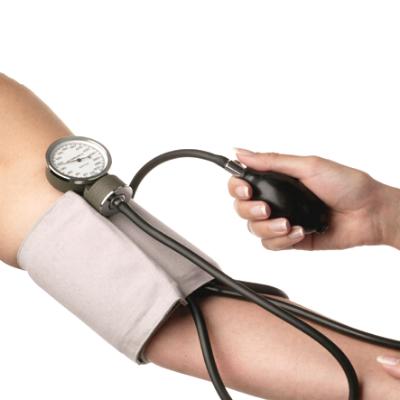Diuretics: when they drink, how to use, how it works
Natural and pharmacy remedies tend to remove excess fluid from the body, these are diuretics. These drugs reduce absorption by the tubules of the kidneys. The main part of the incoming fluid is eliminated during urination. Diuretics ensure the rapid production of urine and increase its content by collecting fluid from the cells. They help to alleviate the patient's condition with edema, abnormalities in the kidneys, high blood pressure. A large selection of these drugs allows you to choose an individual remedy.
Classification
The classification of new generation diuretics in pharmacology is diverse. By analyzing their functions, it is easy to find a suitable and fast-acting medicine for solving individual problems. By origin, they are divided into natural - food, teas, tinctures and decoctions and medication - drops, solutions, tablets for internal use, they can be found in pharmacies. According to the strength of the impact, they are strong, medium intensity and light. According to the duration of long-term use, short-term and "ceiling".
What diuretics are prescribed?
 The doctor selects the course and the active substance individually for each case.
The doctor selects the course and the active substance individually for each case.
If the choice of medicines is made on the advice of the attending physician, the course and the active substance are selected separately for each case. This helps in the shortest possible time to solve problems with deviations in health. For this, a clinical classification is used:
- Strong and powerful diuretics - suitable for removing transudate formations and hypotension. Most often they are used once to relieve symptoms. Examples include Furosemide, Torsemide, Bumetamide, Peritanide, and others.
- Diuretics of medium intensity are designed for use in a course. They are used to treat glaucoma, hypertension, heart and kidney failure, myxedema, and diabetes. For example: Clopamid, Hypotiasis, Indapamide, Dichlordiaz, Chlotalidon, etc.
- Potassium-sparing urinary preparation has insufficient diuretic effect. However, they are the safest and most gentle in their properties. They do not wash out useful magnesium and potassium. Examples: Amiloride, Spironolactone, Triamterene.
- A good diuretic - inhibitors - is a kind of mild medication. Their circle of influence is determined by a decrease in the eye and pressure inside the skull. Means such as "Dichlorphenamide" and "Diakarb".
- Diuretics with an osmotic effect - are a group of strong action and are needed for complex therapy for pulmonary and cerebral edema, shock, sepsis, glaucoma, with prolonged urination disorders, etc. These are Monitol, Glycerin, Urea.
How to use diuretics?
When do the potent drink?
These medicines are also known as loop or ceiling medicines. They are fast acting. This includes Bumetamide, Furosemide, Torsemide, ethacrynic acid, Peritanide. They start working within an hour. The diuretic effect continues throughout the day. In other situations, diuretics are prescribed in tablet form. Powerful diuretics have an effect in the presence of edematous syndrome, the causes of which are kidney and heart disease, nephrotic syndrome, swelling, and hepatic cirrhosis.
Regular intake of powerful drugs is addictive, weakens their effect. Pharmacology says that in order for the effect of drugs to be good, they should be used in small courses, sometimes taking breaks. Potent diuretics are often useful in the treatment of acute forms of diseases such as pulmonary edema, intoxication, acute renal failure, drug overdose, hypercalcemia.
How does a medium intensity drug work?
 Blood pressure normalizes within a month.
Blood pressure normalizes within a month. Products of medium impact belong to the group of thiazides. Examples are: "Hypothiazide", "Dichlorothiazide", "Indapamide", "Chlorthalidone", "Clopamide". These are products that act for 60 minutes, the greatest effect is visible after a few hours. Such preparations work well with a glomerular filtration rate of at least 30 ml/min. Recommendations - chronic edema, arterial hypertension, heart disease, nephrotic syndrome, liver inflammation, diabetes, kidney stones. The most common use of thiazide group products is blood pressure. Such drugs are prescribed in small dosages - this volume is enough to ensure the effect of antihypertension. Normalization of blood pressure occurs within a month. The most suitable for such deviations is considered "Impamid". Such diuretics have a number of side effects:
- violation of electro-water balance;
- hypotension;
- headaches, weakness may be present;
- dizziness;
- nausea and vomiting;
- loose stools or constipation;
- cholecystitis;
- sexual deviations (especially for men);
- pancreatitis;
- low platelets;
- skin rashes.
Light diuretics
Diuretics of the light category include the drugs Triamteren, Spironolactone, Diakarb, Veroshpiron, Mannitol, Amiloride. They have a mild and natural effect on the body, safer. Due to the mild effect, they are best used in complex therapy or prophylactic purposes. In addition, potassium is very important in the body. Such a microelement is excreted when taking diuretics. But light diuretics are potassium-sparing.
Indications for use for men and women
 For cardiovascular disorders, diuretics are used.
For cardiovascular disorders, diuretics are used. Diuretic products can be auxiliary in a wide range of diseases:
- cardiovascular disorders;
- varicose veins;
- hypertension disease of the pelvic organs;
- hepatic abnormalities;
- kidney pathology;
- pregnancy;
- allergic reactions;
- puffiness, obesity, etc.
With edema
When the patient is subject to swelling on the limbs, face, abdomen, etc., a strong diuretic can be drunk. Suitable "Furosemide", "Torasemide", "Piretanide", "Xipamide", "Bumetanide". These medicines should be used regularly and take breaks from time to time. Intermittent use does not allow you to get used to the drugs, that is, their effect continues to be effective. According to the rules of pharmacology, the use of diuretics is indicated once a day until the swelling of the extremities decreases. Next, it is recommended to take a break.
In addition to these drugs, you can take medium-strength diuretics, such as Hypothiazid, Chlorthalidone, Polithiazid, Metozalon, Clopamide, Indapamide. They are prescribed to drink 1 time per day. However, they give the result with a course of therapy for a long period of time, pauses are not needed here.
With a small puffiness, which is caused by mild diseases or minor functional disorders, potassium-sparing agents are suitable - Amiloride, Spironolactone or Triamteren. The dose of such a diuretic is greater than that of thiazide and powerful diuretics, therefore it is divided into several doses, the period of their use is 14-20 days. If the problem persists, the course can be retaken.
For pregnant
 During pregnancy, diuretic drugs alone do not help, complex therapy is necessary.
During pregnancy, diuretic drugs alone do not help, complex therapy is necessary. During gestation, the use of diuretic tablets, drops and solutions is not recommended. Such a contraindication occurs because these drugs wash out water and salts. And this can adversely affect the health of not only the expectant mother, but also the newborn. The diuretic removes water from the vessels, but the swelling does not subside, this can lead to excessive thickening of the blood. This situation provokes placental abruption, thrombosis, miscarriage, etc.
It is impossible to solve the problem with puffiness in pregnant women by using diuretics. To alleviate the condition, it is necessary to consult a doctor who will help draw up a complex therapy. For example, the patient is first prescribed "Furosemide" - it should be drunk for no more than 2 days. It expels fluid from organic tissues. Then, to remove water, you can take Triampur or Spironolactone for a week.




